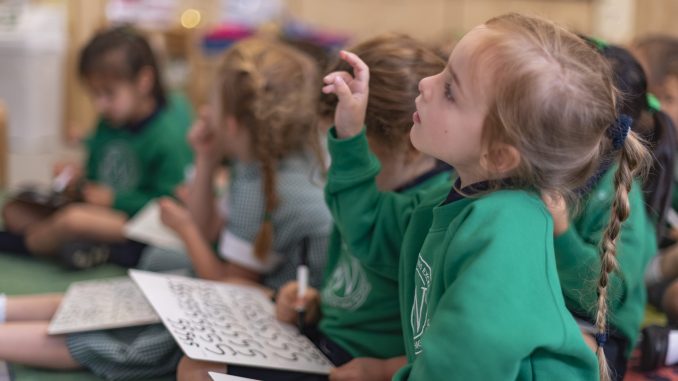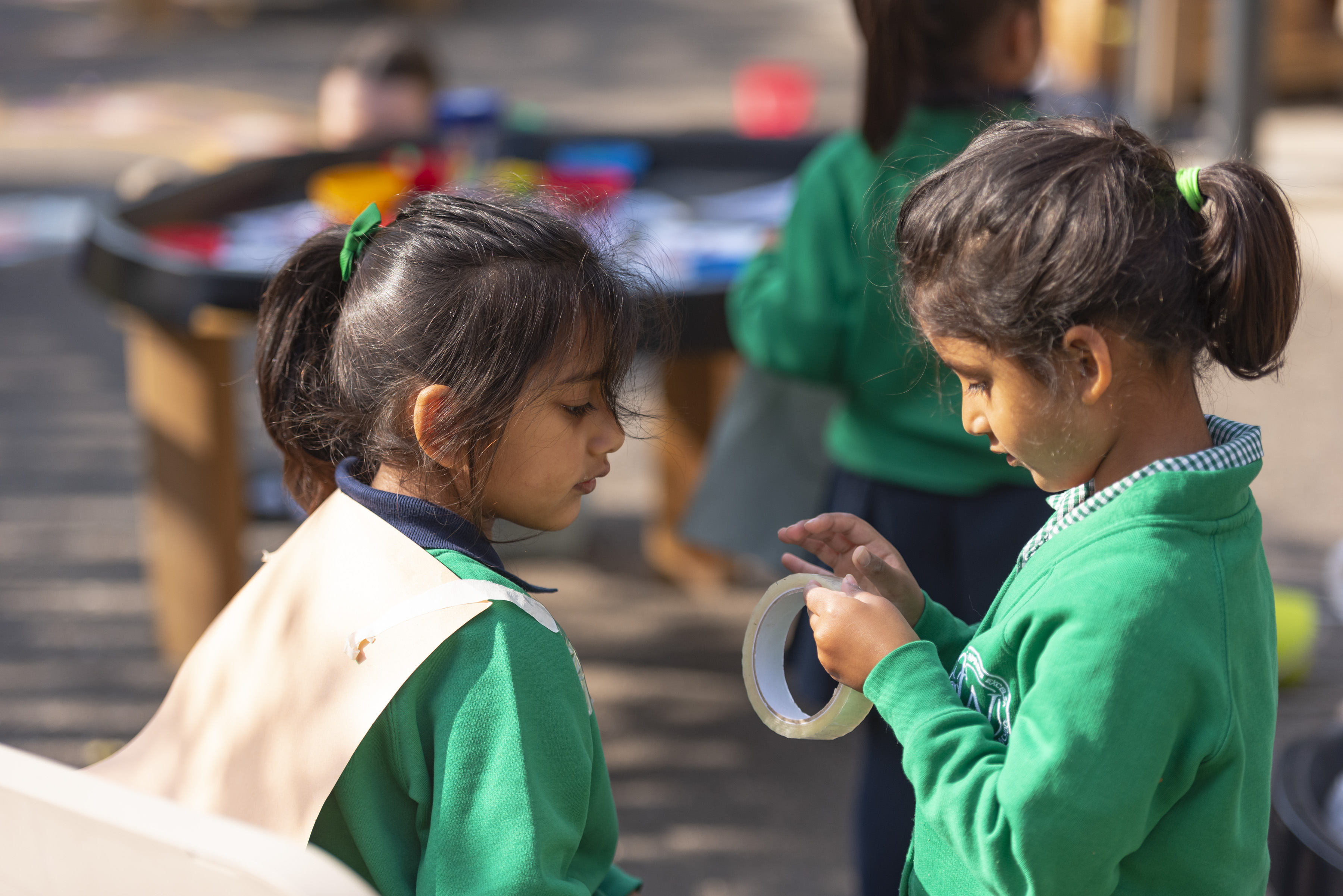Claire Boyd, Head of Junior School, reflects on the process that brought about the inception of Adventum, the new Junior School philosophy-led academic curriculum.
Education, like so many other areas of life, is not immune to the comings and goings of fashions and trends. What is en vogue one decade can be reviled the next. When qualifying to teach back in the early 00s, my evangelical tutors waxed lyrical about ‘The Literacy and Numeracy Hour’, the golden bullet, as they saw it, for guaranteeing educational success in classrooms across the country.
When it was launched in 1998, this highly prescriptive minute-by-minute approach to teaching daily Maths and English lessons, provoked the then-Education Secretary, David Blunkett, to promise to resign in 2002 unless “80% of 11-year olds met the expected level in their end of Key Stage 2 SATs tests”[1]. Alas, by 2010, when I was mentoring new teachers through their training myself, the tide had turned – rather unceremoniously – against the Literacy and Numeracy Hour, and nothing as rigid and straightened as that has earned a trainee teacher their stripes since.
Just a few moments scrolling through the most popular Edu Twitter accounts today will lead you to believe frequent retrieval practice, regular low stake testing and knowledge organisers hold the key to success that Blunkett’s beloved Literacy Hour did, twenty years ago.
When it comes to deciding how to craft a curriculum imbued with the integrity, longevity and depth to withstand the test of time (or least see a good few cohorts reap its benefits), you need something that will not only deliver exceptional educational outcomes but something which will also stand resolute as other trends come and go around it. Between September 2019 and January 2021, this preoccupation loomed large over my team and I, as we sought to overhaul our curriculum and breathe new life into what we teach and how we teach, as well as, most importantly, consider why we teach what we teach.
Launched to our pupils at the start of the Spring Term 2021, Adventum (named in tribute to the spirit of adventure that rests at the heart of the Junior School) is the net result of this process in action. Over the course of four terms, we went from asking ourselves where the value lay in what we had been teaching and which aspects were delivering excellent outcomes to what we wanted for the next generation of our Junior School learners.

Our curriculum building process began at the end, rather than the beginning, by considering what we wanted the legacy of our curriculum to be. What did we want our pupils to take away with them when they finished seven years engaged in our bespoke curriculum and its related lessons? By no means an easy question to answer, we worked through a range of iterations of legacy statements before asserting that we will aim to instill our learners with a love of wisdom, integrity of thought and the social awareness to act with compassion, confidence and agency; leaving our girls filled with a desire to grapple with and overcome the challenges presented by the world in which they are growing up.
With this in place, we then felt a close and immediate connection with the potential a philosophy-led curriculum could provide. Exploring existing research on philosophy driven curricula drove us to agree emphatically with the Lipman that “every subject seems easier to learn when its teaching is infused with the open, critical spirit and logical characteristic of philosophy.”[2] It is only by fostering a curriculum that elevates thinking rather than the transmission of knowledge will we truly equip the young minds in our care, with the skills and abilities to use the knowledge and skills they acquire to meaningfully contribute to shaping the world around them.
When considered alongside both the capabilities and abilities of our eager learners, Adventum began to take shape around a foundation of provocative thinking, intellectual disruption, critical questioning and increasing levels of self-knowledge. Rather than being tied to closely to a means of delivering content over time in an efficient and sufficient manner, we worked hard to look for ways that the discovery of knowledge and skills could be fused together to help strengthen connections and schema building whilst responding naturally to the innate predisposition all children have for asking questions, for challenging and seeking out possibility. We looked for a practical way to take the structure and progression of the National Curriculum – in which we recognise inherent value – and align it closely with a programme which gives space and breadth for the thinking, contemplation and sequence of discoveries that relate directly to reasoning; there is indeed “no point in teaching children logic if one does not at the same time teach them to think logically.”[3]
So, half a term into the implementation of Adventum, what are our girls experiencing? Each sequence of lessons is rooted in a philosophical question that provides a focus to the learning for that term. The questions posed simply yet designed to offer perplexity of thought when engagement levels are high.
Adventum begins by introducing first providing an introduction to meta-physics (understanding ourselves), moving through to develop an understanding of aesthetics (appreciating the natural world) and culminating with the complexities of ethics (wrangling with the moral dilemmas of life). This term sees Reception wonder what makes a good character, Year 3 ask if colour plays a part in our identity, Year 6 consider who decides the status quo around us. With the humanities, science, art and music interwoven into the exploration of these questions, high quality and ambitious texts provide the important context required to interrogate the big questions being asked of our bright minds. Where the aim of philosophy writ large is to cultivate excellence in thinking, Adventum has been crafted to spur our girls on to examine what it is to think historically, musically and scientifically.
Whilst we do not expect Adventum to exist in a pedagogical vacuum, unchallenged and unaffected by the progress in education and child development, it is hard not to feel that the providence found in the quest of thinking that has gone before sets us in good stead. So here is to the adventure of asking big questions of big minds and inspiring big thinking from Early Years onwards.
References:
[1] p.1 After the Literacy Hour: May the Best Plan Win, Centre for Policy Studies, 2004
[2] Philosophy Goes to School, M. Lipman, Temple, 1988, p.4
[3] Ibid p. 6

